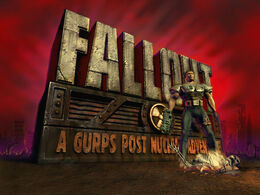Sup. General discussion question, because I’ve been thinking about this topic a lot lately. What are your opinions on forum quests, play-by-post games, tabletop roleplaying, and the like? Especially when it comes to how they relate to IF? As someone who hangs around those corners of the Internet a bit, there’s a lot of similarity between those mediums.
Quests: I read quests in my spare time and vote occasionally. (If you’re not sure what they are, there’s an explanation here.) There are some excellent quests out there: Ruby Quest*, Awful Hospital, and Souvarine’s quests** as examples. No this post isn’t just an excuse to shill Souvarine’s stories. Homestuck is probably the most well-known one (before it became the abomination it is now (disclaimer: I have not read Homestuck)). Like IF, quests are a niche medium split into small and relatively obscure Internet communities, not commercialized, mainly involving strangers online.
Something I’ve always wanted to do, which I probably never will because the work it would take is incredible and I don’t have the creative rights, is adapt one of the quests I like into interactive fiction. (Or, more likely, to make an IF heavily based on one of the quests I like.) I’ve thought about this for a while. Quests are very different from traditional IF, obviously. The main advantage of quests, which is also their disadvantage, is the quest master must live-react to the player’s choices and with a small enough player group can even have customized reactions for every single choice every single player makes. Which is why the vast majority of quests die before completion. With IF you can only take so many actions into account, you have to do it all ahead of time and then branch out the story based on the potential results. No live reaction involved, and much less of a social element.
One of the interesting things about quests is that though the basic format is somewhat similar to IF (interactive text stories), the genre and style tend to be different. I feel like quests (and their related cousins TTRPGs) hew closer to their RPG roots than traditional IF. Many quests involve stats and resource management and detailed mathy systems for interacting with the world, while from my experience simulation/RPG-type gameplay is less prominent in IF than, say, parser puzzle games (correct me if I’m wrong). I’ve seen quests play with this in unique and interesting ways I’d like to put into a IF game somehow, and since the two mediums are both text-based it’s easier to bring mechanics over from one to another than, say, to incorporate elements of a visual puzzle game into text.
TTRPGs (tabletop roleplaying games): I found one topic on this from 2006, but not much other discussion on the forum. If you’re here you probably know what they are. I’ve been in a few DnD games myself, all of which died after a few sessions, though I have hilarious stories from them. Such as that one time my character jumped off a waterfall and broke both their legs and had to be carted around in someone’s bag of holding for the two remaining sessions we finished before the campaign died.
Anyway, what are your thoughts? Do you have any experience with quests or roleplaying campaigns in general? Ever tried to run one, ever participated in one? How did it turn out?
* Ruby Quest was, perhaps unfortunately, originally run on 4chan. The archive omits most of the more questionable audience content from there, but there’s still a smattering, so be warned. It is also a graphic horror story.
** Souvarine’s quests are also run on 4chan. They’re not that bad though I swear. Seriously, Souvarine is worth looking at if you like bizarre and eloquent weird fiction.
